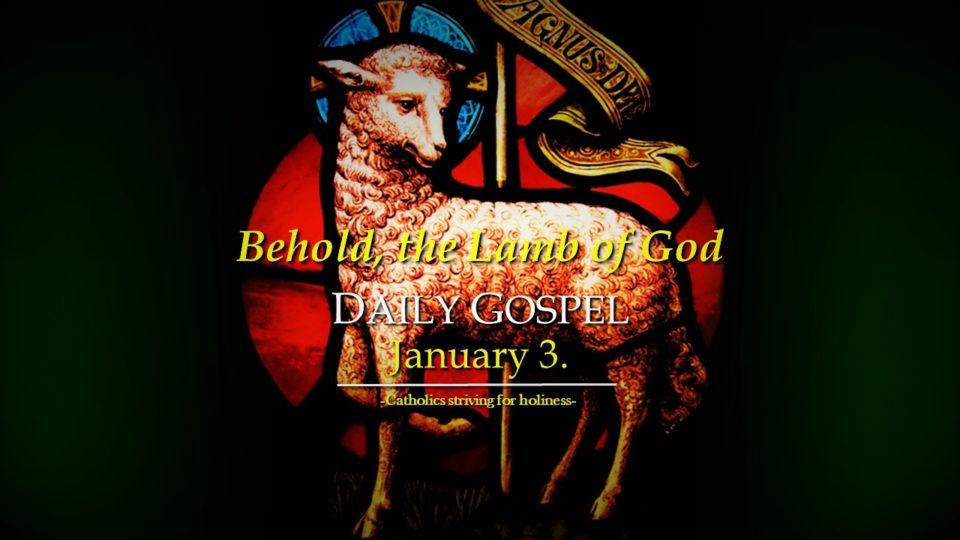January 3:
“Behold, the Lamb of God.”
John 1:29–34: Behold the Lamb of God
John the Baptist saw Jesus coming toward him and said, “Behold, the Lamb of God, who takes away the sin of the world. He is the one of whom I said, ‘A man is coming after me who ranks ahead of me because he existed before me.’ I did not know him, but the reason why I came baptizing with water was that he might be made known to Israel.” John testified further, saying, “I saw the Spirit come down like a dove from the sky and remain upon him. I did not know him, but the one who sent me to baptize with water told me, ‘On whomever you see the Spirit come down and remain, he is the one who will baptize with the Holy Spirit.’ Now I have seen and testified that he is the Son of God.”
WHY IS JESUS CALLED THE “LAMB OF GOD”?
COMMENTARY OF THE NAVARRE BIBLE:
- For the first time in the Gospel Christ is called the “Lamb of God”.
- Isaiah had compared the sufferings of the Servant of Yahweh, the Messiah, with the sacrifice of a lamb (cf. Is 53:7); and the blood of the paschal lamb smeared on the doors of houses had served to protect the firstborn of the Israelites in Egypt (cf. Ex 12:6-7): all this was a promise and prefiguring of the true Lamb, Christ, the victim in the Sacrifice of Calvary on behalf of all mankind.
- This is why St Paul will say that “Christ, our paschal lamb, has been sacrificed” (1 Cor 5:7).
- The expression “Lamb of God” also suggests the spotless innocence of the Redeemer (cf. 1 Pet 1:18-20; 1 Jn 3:5).
- The sacred text says “the sin of the world”, in the singular, to make it absolutely clear that every kind of sin is taken away: Christ came to free us from original sin, which in Adam affected all men, and from all personal sins.
- The book of the Apocalypse reveals to us that Jesus is victorious and glorious in heaven as the slain lamb (cf. Rev 5.6-14), surrounded by saints, martyrs and virgins (Rev 7:9, 14; 14:1-5), who render him the praise and glory due him as God (Rev 7:10).
- Since Holy Communion is a sharing in the Sacrifice of Christ, priests say these words of the Baptist before administering it, to encourage the faithful to be grateful to our Lord for giving himself up to death to save us and for giving himself to us as nourishment for our souls.
PRACTICAL TIPS:
Let us thank God for his total self-giving and sacrifice and acknowledge the sacrifices other people are doing for our sake (for example, our parents). May we do acts of service to others and offer sacrifices to God without complaining, imitating Christ, who was “meek as a lamb before its shearers.”
